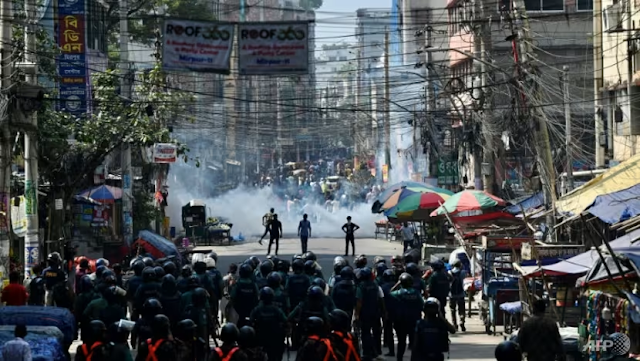Violent Bangladesh Garment Protests Force Closure of Hundreds of Factories
Bangladesh, one of the world's largest garment exporters, is grappling with a crisis as violent protests in the garment industry have resulted in the temporary closure of hundreds of factories. The protests, driven by demands for better wages and improved working conditions, have disrupted the production and supply chains of a vital sector of the country's economy.
Bangladesh's garment industry has long been a cornerstone of its economy, employing millions of workers, primarily women, and contributing significantly to the nation's GDP. However, the industry has been marred by reports of poor labor conditions, low wages, and inadequate safety measures, leading to growing discontent among the workers.
Protests erupted as workers took to the streets to demand fair wages, improved safety standards, and better working conditions. These demonstrations turned violent, with clashes reported between protesters and the police. The situation escalated to the point where several factories were forced to shut down temporarily to ensure the safety of their employees and property.
The closure of hundreds of factories has not only disrupted the lives of millions of workers but has also affected the global supply chain. Many international clothing brands and retailers rely on Bangladesh's garment industry for their products, and the ongoing unrest has the potential to impact deliveries and production schedules.
The government of Bangladesh, along with factory owners and labor representatives, is engaged in discussions to find a resolution to the ongoing crisis. It is crucial to strike a balance between the demands of the workers and the sustainability of the industry, as it plays a significant role in the country's economy.
To ensure the long-term stability of the garment industry in Bangladesh, all stakeholders need to work together to address the legitimate concerns of workers. This includes improving wages, safety measures, and working conditions. International brands and retailers that source products from Bangladesh also have a responsibility to ensure that the factories they work with meet ethical and safety standards.
In conclusion, the violent protests in Bangladesh's garment industry are a stark reminder of the need to prioritize fair labor practices and safety standards in this critical sector. Resolving the crisis will require collaboration and a commitment to making lasting improvements that benefit both the workers and the industry as a whole. The eyes of the world are on Bangladesh as it seeks a peaceful and sustainable resolution to these challenges.

.png)
Comments
Post a Comment